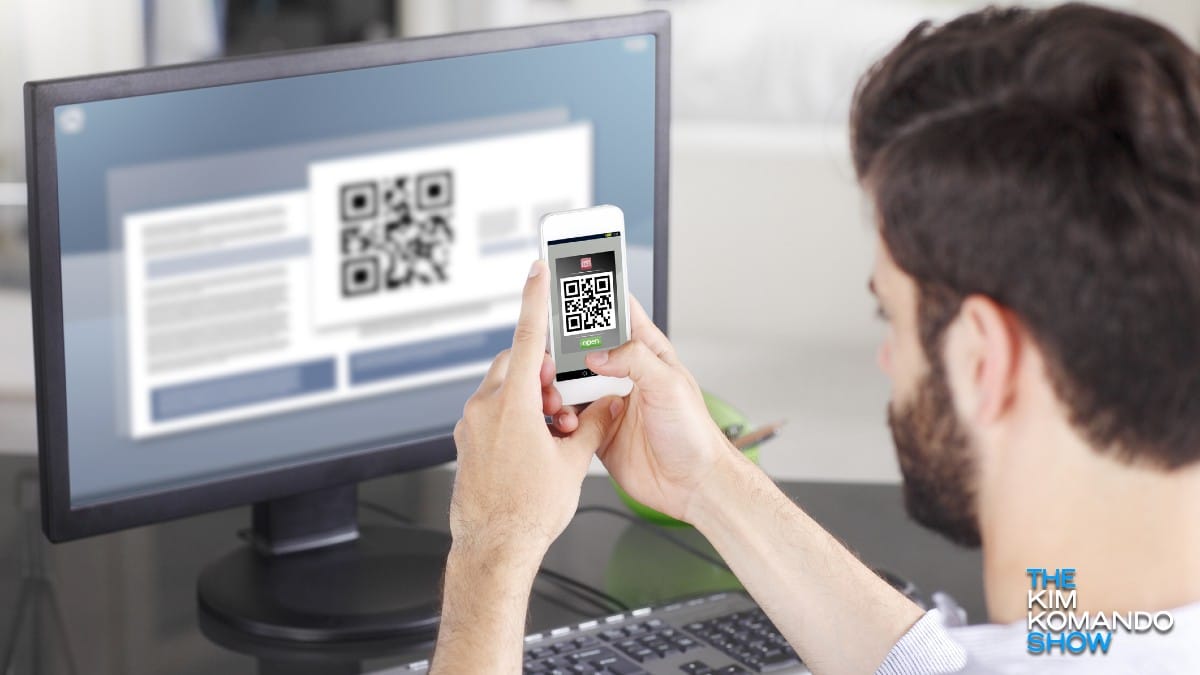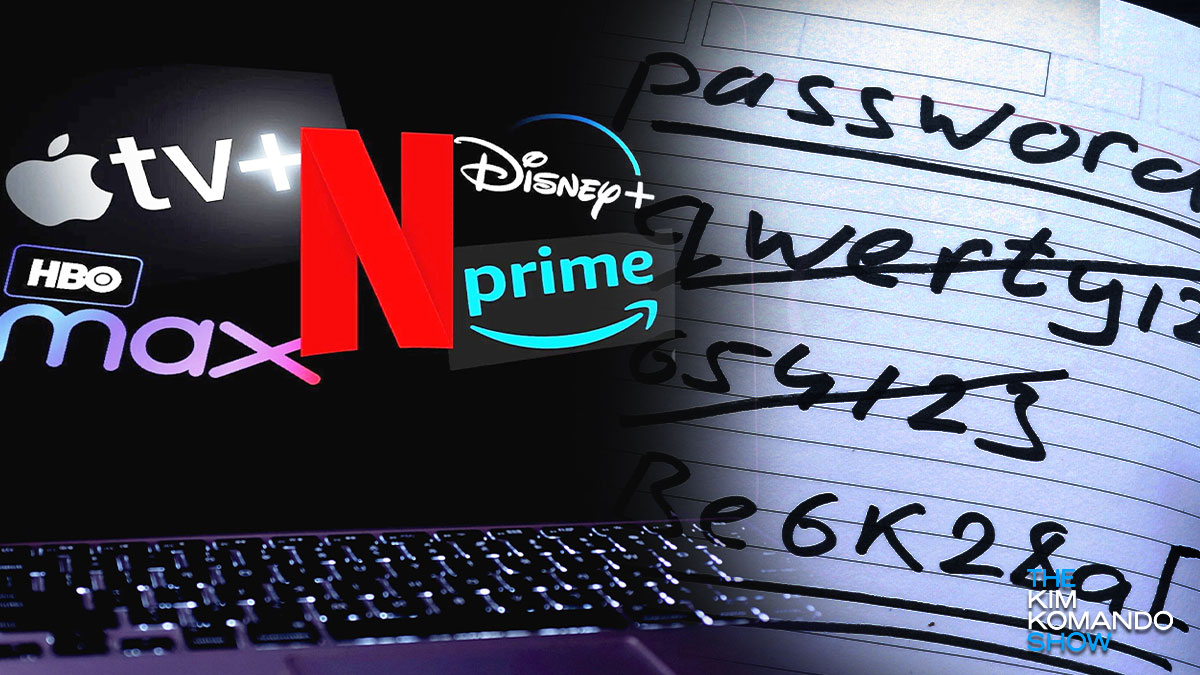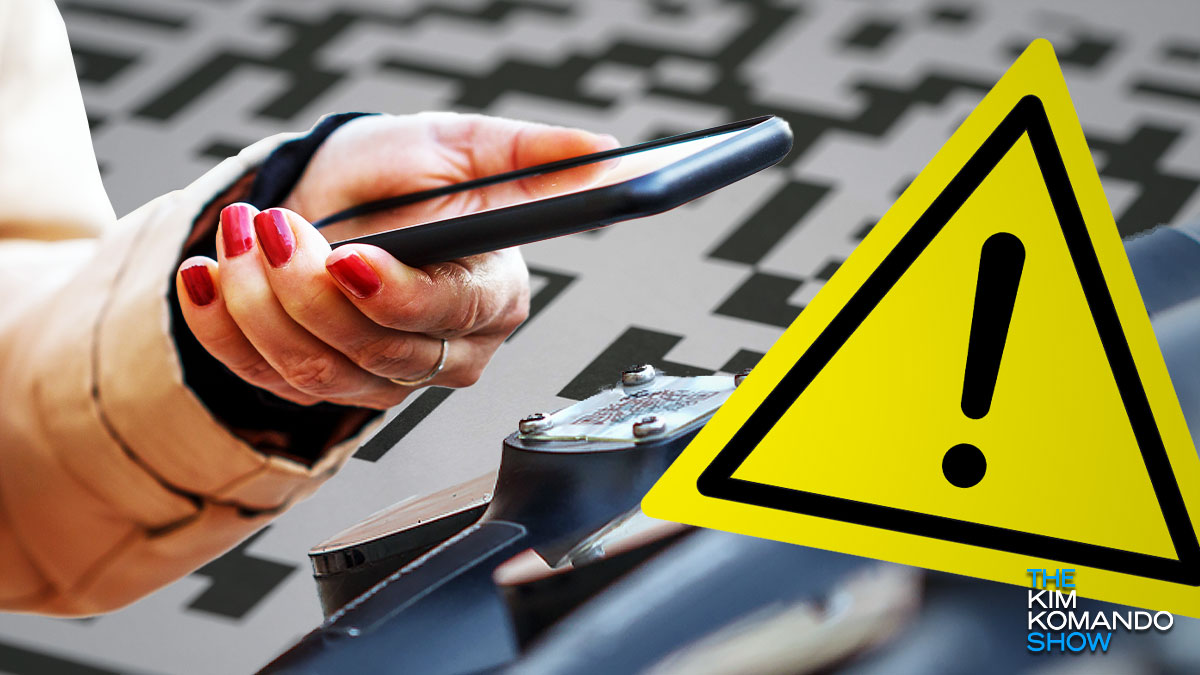Received a message from FedEx or UPS about a package you didn’t order? Don’t fall for it —clicking that link could put your personal and financial information at risk.
Best way to do your financial work online

I was on Jean Chatzky’s podcast talking about scams and how to avoid getting taken. (She’s fabulous, by the way!) Jean asked me the best way to bank online.
I explained how you should have two laptops or computers. Use one for email, surfing the web, doing work, that sort of thing. The other should be your dedicated financial work computer. You can use an inexpensive Chromebook.
The idea is that if you get a phishing email or fall for a scam, the hackers can’t access your financial accounts. Since then, I’ve had a slew of folks asking me which is the best Chromebook for around $200. Here are my picks:
- HP Chromebook ($199): It has a good processor, 4GB of RAM, 32GB of storage, weighs under 3 lbs. and has 14.25 hours of battery life. The 14-inch screen is HD, too.
- Lenovo Chromebook Flex 3 ($223): At 11.6 inches, the Lenovo’s screen size is smaller than the HP, but you’ll get 64GB of storage instead, and the screen flips, which is super handy.
✅ If you want to learn more about using a Chromebook as your exclusive financial computer, I’ve got you covered here.
We may receive a commission when you buy through our links, but our reporting and recommendations are always independent and objective.
Watch out for QR code scams being sent through email

Scan a QR code and you can get information such as recipes, menus, website links and links to download apps, coupons and more. Quick Response (QR) codes were created to track automotive parts, but they’re everywhere now.
The smishing scam
Tax prep software was sending info back to Meta

It’s no secret that Meta’s Facebook actively wants to collect as much information on you as possible. The more it knows about your habits and hobbies, the better it can serve targeted ads and buying suggestions. Tap or click here for 10 Facebook privacy and security settings to change right now.
This screen-sharing scam can have devastating consequences

Hackers are always coming up with new ways to get your information. You may think you can spot a scam or hack at first glance, but don’t be so sure.
Cybercriminals can hide malicious code inside apps to steal data and take control of mobile phones. Security researchers recently uncovered an updated banking Trojan embedded in Android apps downloaded more than 50,000 times. Tap or click here for our report.
'Scambaiting' w/ @TrilogyMedia, facial recognition hits US stores & 3 signs your printer is hacked
Plus, ChatGPT-4 will soon be everywhere, even in cars. But hold on, I’ll explain why this may not be good news just yet. Also, watch out for Bluetooth skimmers at the self-checkout to protect your financial information. And I’ve got the scoop on earwax-sucking headphones, money-saving smart water devices, and why you should stop giving your phone’s address book to apps.
Why it’s a really bad idea to keep sharing your streaming passwords

Netflix might be the king of streaming, but a company doesn’t stay on top by giving its service away for free. To deter cord-cutters from sharing account login details, Netflix is testing an extra $2 charge for those caught doing it.
Get a voicemail about tax services? Don't fall for the 'Eavesdropping Scam'

Tax Day is nearing, and we hope you have everything in order by now or at least on your way there. Just because there’s a deadline doesn’t mean you should be scrambling to finish by then.
April 18 is not only the last day to file your taxes, but it’s also the deadline to claim your old tax refunds from 2018. The IRS says there are $1.5 billion in unclaimed funds, and hundreds of those dollars could be waiting for you. Tap or click here for our report and tips on claiming your refund.
Check your phone - Antivirus apps caught spreading banking malware

When it comes to smartphone apps, proceed at your own risk. When you decide to download an app, even if it’s from a trusted source, you could be exposing your data, privacy and even financial information without knowing it.
Before you scan a random QR code, read this warning

Quick Response codes, or QR codes, can be helpful to direct mobile phone users to a website quickly. You don’t need to remember the URL, as you only need to point your phone’s camera at the uniquely-generated square.
SIM swapping is one of the most dangerous phone hacks - And it's on the rise

You might assume that the SIM card in your mobile phone is safe. After all, it is firmly embedded into your device, and someone would need to take it out physically to access it. But that isn’t the only method. Tap or click here for an in-depth look at SIM swapping scams.
Here's what those free credit check sites really cost you (it's not just money)

Many Americans have used free credit reports to see how they are doing financially. It’s not a bad idea to get a grip on your credit. But there is a danger lurking in them too. Tap or click here to see how much your credit card is now worth on the Dark Web.
Here's how much your credit card is now worth on the Dark Web - and the one account worth a lot more

Payment apps make it easy to pay back friends, settle up a restaurant bill or order something online. There’s also a sanitary advantage, as you don’t have to handle credit cards, payment machines or cash.
While convenient, payment apps do carry risks. There are right and wrong ways to use them safely. Tap or click here for our tips on locking down these apps.
Insurance scams are spiking. Take these steps to protect yourself
Scammers are becoming so brazen in their tactics that they are going so far as to impersonate federal officials. This month, an alert was issued that criminals are phoning potential victims, claiming to be FBI agents. Tap or click here for details of this nasty scam.
Did you receive an email about your ballot? Read this before you click

The election may be coming to a close, but that doesn’t mean the disinformation will stop any time soon. Scammers and cybercriminals are still hunting for personal data and financial information using tricks like phishing sites and mass emails.
Don't let your older loved ones fall victim to this scary new phone scam

Have you received a call from the FBI recently? How about the Department of Justice? If so, you’re not alone. People across the nation are reporting mysterious calls from investigators — and all of these calls have one thing in common: They’re scams designed to trick you into revealing personal information.
Beware! Text message delivery scams are back and sneakier than ever

Scammers are a creative bunch, aren’t they? When so much information and money is up for grabs on the internet, it’s only natural that the most clever and resourceful criminals will get away with the biggest score.
Whether they’re tricking users into thinking they owe back taxes or developing fake ransomware and sextortion emails, these cybercriminals truly put the “artist” in “con artist.” Tap or click here to see why you shouldn’t panic when you get a sextortion email.
Your Netflix subscription can raise your credit score - here's how

A solid credit score is important for so many aspects of modern living. From purchasing cars to qualifying for an apartment, a high credit score gives you a distinct advantage that can make your life easier. A low score, on the other hand, means certain purchases and events will cost you more money in the long run.
Amazon Prime scam: This phone call is conning people

It seems like scams are lurking around every corner these days. Even if an area code, email or website seems familiar, it never hurts to look a little closer to make sure it’s not a scam call or a phishing campaign in disguise.
Warning! These shipping emails from FedEx and UPS are fakes

If you’re like most of us, you’ve probably ordered items for delivery at some point during the COVID-19 pandemic. And just like most of us, you’ve noticed delays in shipping no matter where in the country you live.
These delays aren’t happening without good reason, mind you. Shutdowns at postal and shipping facilities have snarled logistical traffic, and even Amazon is struggling to keep up with a record number of orders. Tap or click to see why Amazon wants you to shop less.
